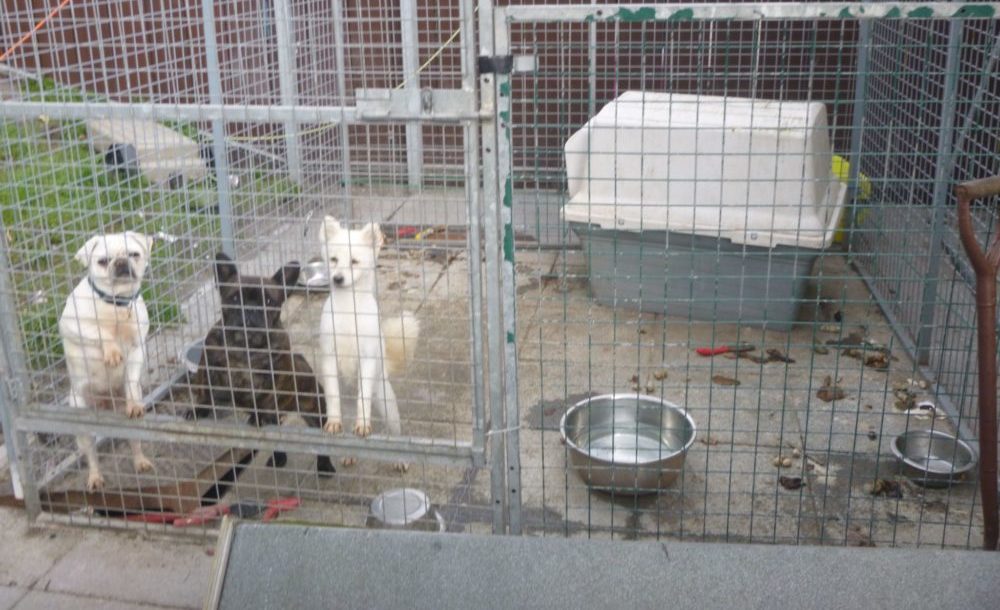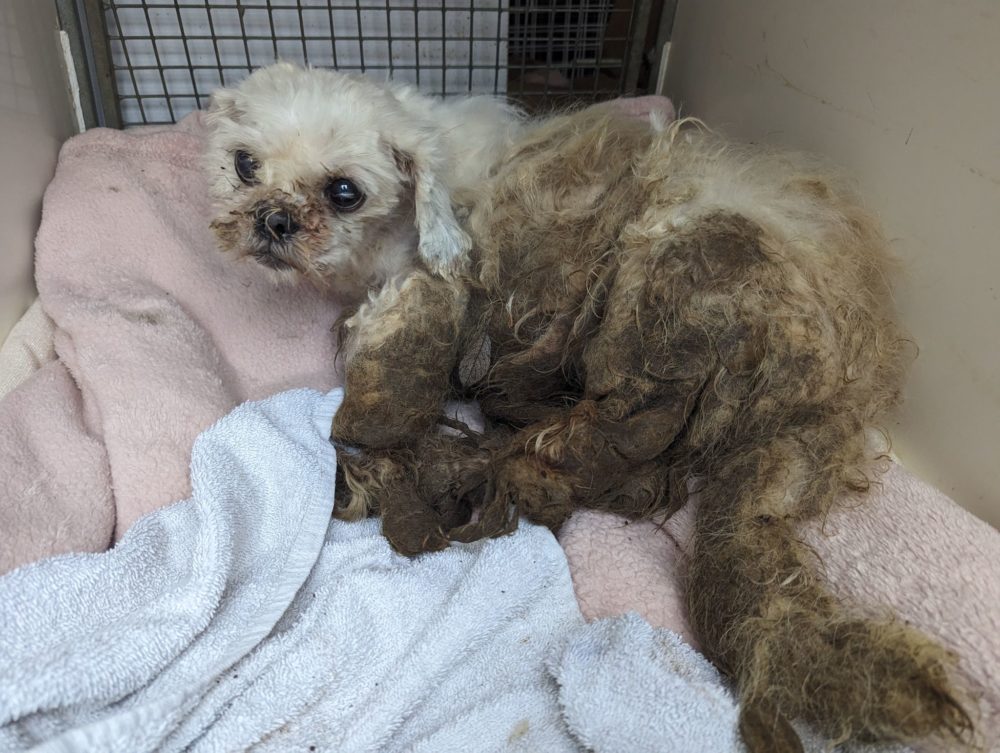Wales must do better for man’s (supposed) best friend

- Miniature breed dogs on a puppy farm.
Stephen Price
A friend from over the border bought a corgi from west Wales last month.
A handsome little thing – he’s been given a Welsh name (that’s for another op-ed if I’m feeling brave) and will no doubt live a life of utter luxury and enjoyment.
Meanwhile, countless dogs in Wales languish in shelters, desperately waiting for homes.
Every breed, size and age imaginable just waiting to be given a second chance after once-upon-a-time sharing the same start in life as my friend’s corgi.
Offence
Like most people across the nation, I consider myself an animal lover, and I’ve lost count of the number of strangers I pass by while walking my own dogs who tell me, “I much prefer animals to people!”
But do we? Really?
Around a decade back, I remember taking great offence at an article by PETA which, to paraphrase, told me that for each dog we buy, another waits in a shelter.
‘It’s not my fault that dogs are bought by irresponsible owners!’ I ranted while taking a break from gazing at my pug, Mr Pugh.
I am an animal lover! Blameless! Faultless me! How dare PETA, the People for the Ethical Treatment of Animals call me out!
Penny drops
Fast forward a few years, and Mr Pugh began to suffer.
Firstly, we noticed his walking altered. A walk in the snow highlighted a swooping of one leg. But we thought nothing of it. And then he began to experience incontinence and his walking worsened.

His treatment, however, caused him the most suffering of all.
Trips to Bristol for futile (extortionate) operations led to paralysis and his untimely death.
I learned the lesson the hard way and would never buy a dog from a breeder again – but it took me the cruellest lesson imaginable for the penny to drop.
I had been warned of the dangers of brachycephalic breeds. I’d been told that my purchase was encouraging backyard breeding and prolonging the endless wait so many dogs have in shelters. But I knew better.
Shelters
I now share posts from shelters across Wales in the hope that I can get other people to find room in their house and hearts for a dog that deserves a second chance at life.
And I go to bed, sad, imagining dogs shutting down and breaking down, lonely and unwanted in shelters.
XL Bulldogs have taken the spotlight over the past few months, but every day I’m greeted with images of new arrivals or new RSPCA cases, and save for lots of hot air (and certainly not enough chipping for all that’s been worth) – nothing is being done.
What is being done?
A consultation on Welsh Government proposals to strengthen how animal activities such as greyhound racing and dog walking services are regulated comes to a close today (1 March).
At the moment, a number of animal activities are currently not regulated, or regulations are no longer fit for purpose.
Strengthening such licensing is hoped to enhance and protect animal welfare, with a statutory licensing scheme setting minimum standards which all licence holders would need to comply with, underpinned by an inspection regime
The Licensing of Animal Welfare Establishments, Activities and Exhibits consultation marks the first phase of the development of a National Model to improve welfare standards and is a Programme for Government commitment.
Areas which are currently not licensed include animal rescues and sanctuaries, dog walking and grooming services, and dog play parks, amongst others.
Off the hook
Dog breeders, however, seem to be being let off the hook.

The intention at this stage is to seek public opinion on a range of areas identified, to progress policy and develop future proposals. Any future licensing regimes in the areas identified would be subject to further public consultation, prior to implementation.
Minister for Rural Affairs Lesley Griffiths said: “Our long-term ambition in Wales is for all animals to have a good life. A National Model for the regulation of animal welfare will help bring us closer to this goal.
“The licensing of animal-related activities would ensure the health and welfare of the animals involved is considered at all times, driving improvements in standards of keeping and enabling better enforcement in those instances where things go wrong.”
Gaps
Ms Griffiths added: “A great deal of work has been carried out ahead of this consultation to identify the activities which are currently unlicensed, and where there are gaps in current arrangements.
“I know greyhound racing remains a hot issue and the consultation fulfils my commitment to the Petitions Committee in including a question on potential licensing for owners, keepers and trainers of racing dogs, and seeking submissions of evidence for or against consideration of a potential phased ban in future.
There are strong views on all sides, and this consultation will help us to assess and consider all potential actions and build a crucial evidence base before any conclusions are drawn. Any future regulatory measures or changes must be assessed on evidence and would be subject to further consultation.”

While walking my dogs last night, I passed by three sheds (that I know of) that house dogs for the best part(!) of their lives. I’ve yet to ever pass these dogs by on an actual walk.
Their lack of stimulation and their boredom lead them to spend much of the day and night barking.
But one is used for rabbiting, and I assume the family with the French bulldog and chihuahua (and unhappy neighbours) must need a little break – that’s fine.
And it’s fine that someone can not chip, feed or seek medical assistance for their dog – a shelter will be there to pick up the bill.
Complexities
Cases of animal abandonment have risen exponentially with the toxic coupling of an end to Covid restrictions and a cost of living crisis like no other.
Backyard breeding and puppy farms are no longer the gold mines they were, but they remain a constant source of far too many abandoned dogs – the poor breeding machines themselves often abandoned or euthanised once their money making days are done.
My decade-old remark about ‘irresponsible’ owners doesn’t take into account people’s individual housing issues, bereavements or other unfortunate circumstances. Life is complex and sadly, for many, not easy.
But excuses aside, why are we allowing our reputation as the puppy farm capital of the UK to continue, business as usual?
Wales has led the way with banning snares and glue traps, so why can’t we do more for man’s supposed best friend?
Let’s not let another dog suffer needlessly because of their breed.
And let’s stop the ruthless money-oriented trading of dogs, cats, or any other animal for that matter (with the exception of working dogs and rare breeds), until the last cage is empty.
More information on the 12-week consultation which ends today (1 March) is available here: Licensing of animal welfare establishments, activities and exhibits | GOV.WALES
Support our Nation today
For the price of a cup of coffee a month you can help us create an independent, not-for-profit, national news service for the people of Wales, by the people of Wales.







